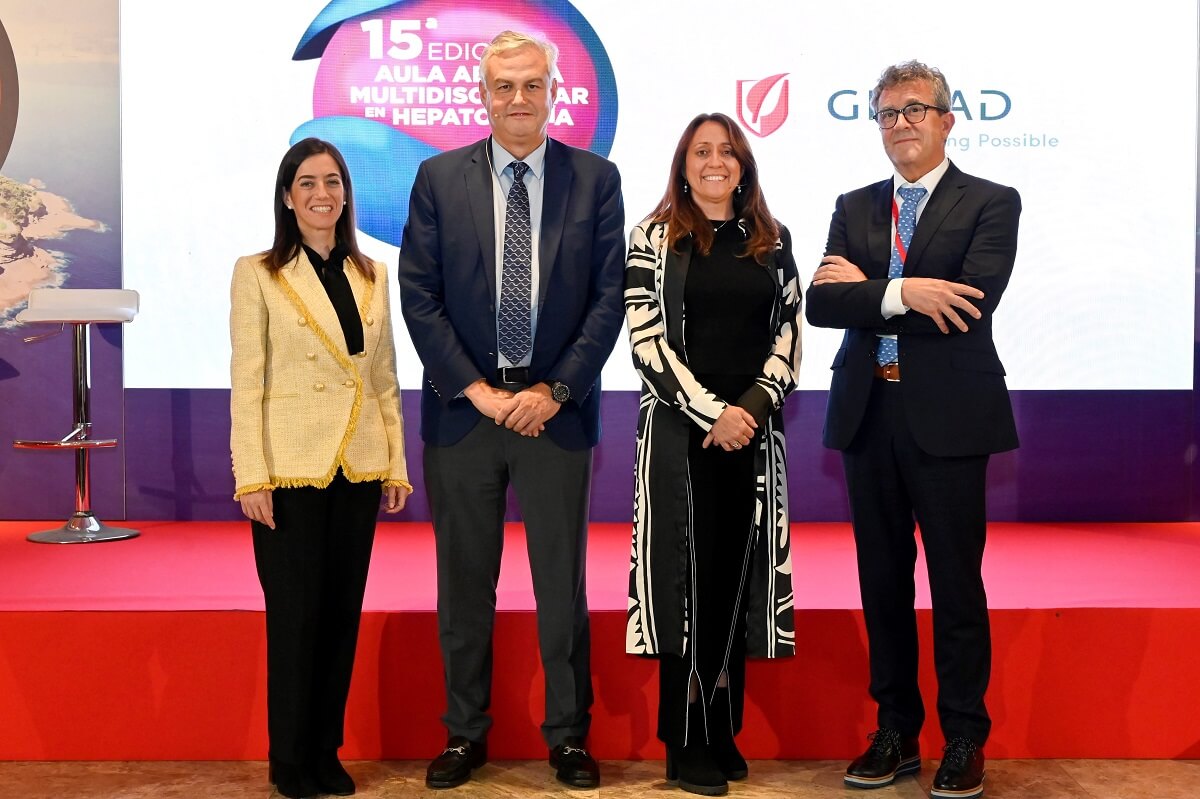Spain needs one last ditch effort Become one of the first countries to eliminate the C virus; so he promised Javier Crespofrom the Marqués de Valdecilla University Hospital in Santander and co-coordinator of the project open classroomA meeting was held in Santander last weekend with the express aim of demanding a final push to eliminate the hepatitis C virus (HCV) from Spain.
However, they say that in order to meet this challenge, it is key to continue promoting a commitment to innovation and to continue advancing Spain’s strategy to eliminate viral hepatitis. The event brought together more than 150 experts at a time when the elimination of the C-virus is just around the corner. “At Aula Abierta we remember the need to do a job well, which will be an example for the whole world.” Crespo said.
Liver disease remains a global health problem in Spain. Although more than 164,502 people with hepatitis C have been treated, with a cure rate of approximately 95%, it is important to continue as more than 76,000 people are still estimated to have active hepatitis C infection. Hepatitis C virus in my country, 22,500 people do not know their diagnosis.Marta Velázquez, director of senior business unit for liver diseases at Gilead Sciences, emphasized, “Gilead’s commitment and efforts They not only aim to develop innovative medicines or train health professionals, but also implement projects and scholarships for scientific associations, health institutions and NGOs. This allows us to achieve elimination in our country. For the past 20 years, we have been on the front lines of transforming care for patients with hepatitis B and are committed to addressing hepatitis D. “
Regarding the news about this conference, José Luis Calleja from the University Hospital of Puertaero in Madrid explained: “By organizing this event we sought to select the most relevant topics in the field of hepatology , so that it serves as an attractive forum for discussion among attendees. Always with the aim of reviewing the most important therapeutic and diagnostic advances in our specialty.. For this reason, current topics such as hepatitis D have been included because important advances have been made in its diagnosis and treatment. “.
In this edition, pathologies such as drug-induced liver injury (DILI) or Wilson’s disease, metabolic hepatic steatosis (MASLD, formerly nonalcoholic fatty liver disease), and alcohol-associated hepatic steatosis (MASLD) are also reviewed Review. ALD) and metabolic dysfunction and alcohol-induced hepatic steatosis (MetALD).
As part of ongoing training, the third edition of Lega-C was also held with Gilead in Santander. At this event, the current status and challenges of research in the areas of AML, MASLD, and viral hepatitis B and delta were presented through a working group coordinated by Dr. Crespo, Dr. Calleja, Dr. Cabezas, and Dr. Buti. As Calleja explains, “Its goal is not only to understand what research projects have been conducted recently in the field, but also to discover what needs are unmet.” Rather, this should be the subject of investigation. The experts cited here turn Lega-C into the perfect framework for discussing the most relevant aspects to identify the most important research areas to be followed in the field of hepatology. “
“Lega C is designed for young researchers. We work with them and want them to tell us what they are doing, what unanswered aspects they see in their research and what we can do together. Committed to what they do things, what they want to do and how we can do it together. Help them organize those thoughts. This is necessary for them to continue training,” Crespo added.
That’s a key statement, said executive Marisa Álvarez.”We have become a reference event for multidisciplinary dialogue between experts and researchers in the field of liver diseases. This program aims to discuss and share the current state of research and challenges in areas of unmet need, in order to continue to face current and The challenge ahead is to improve the lives of patients suffering from any of these diseases. At Gilead, we are firmly committed to promoting and promoting scientific development in Spain. Since 2017, Gilead has developed 4 clinical trials and funded 11 projects led by researchers in the field of viral hepatitis, involving approximately 30,000 volunteers. In addition, in the past 10 years, Gilead has promoted more than 260 national projects through different scholarship programs, with an investment of approximately 5 million euros. “
The conference was born as an open forum for dialogue and engagement between speakers and attendees. This is another example of Gilead’s commitment to addressing liver disease and eliminating viral hepatitis to patients and health professionals, and to continued training, research and innovation in the management and care of these diseases in our country.
The 15th edition of the “Multidisciplinary Open Classroom in Hepatology” was coordinated by José Luis Calleja (University Hospital Puerta de Hierro, Madrid) and Javier Crespo (University Hospital Marqués Valdesilla, Santander), with the participation of Rafael Esteban (Valdesira University Hospital, Barcelona) University Hospital of Hebron), Joaquín Cabezas (University Hospital of Santander de Valdesira), Sonia Albertos (H. Residència Sant Camil, Barcelona), Marta Casado (Hospital of Torre Cardenas, Almeria), Juan Turnes (Montevedra Hospital), Javier García-Samaniego (University Hospital of La Paz, Madrid), Raúl Andrade (University Hospital of Our Lady of Victoria, Malaga), Maria Buti (University Hospital of Valle Hebron, Barcelona), Zoé Mariño (Barcelona Hospital Clinic) and Agustín Albillos (Ramón y Cajal University Hospital, Madrid).

